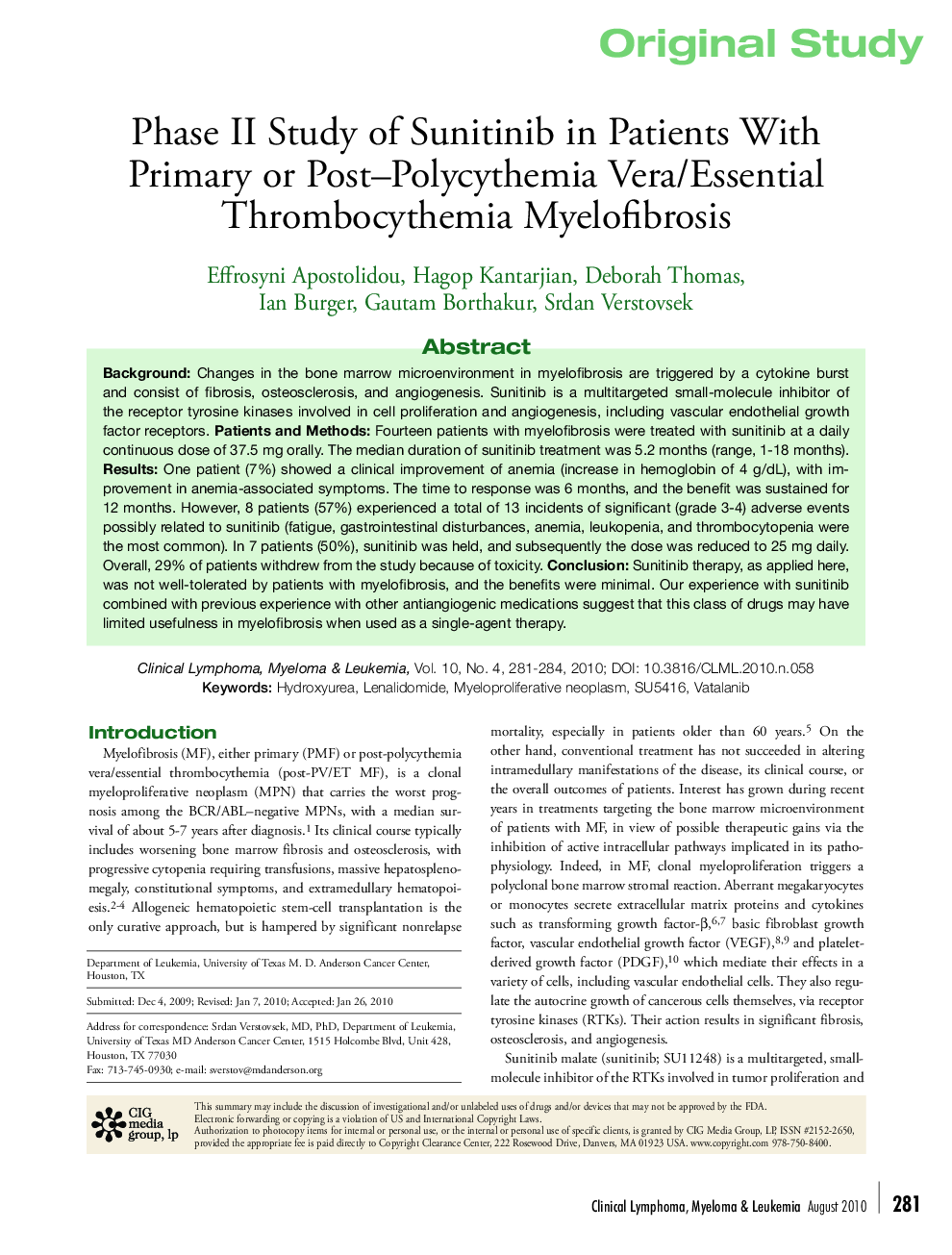| Article ID | Journal | Published Year | Pages | File Type |
|---|---|---|---|---|
| 2755522 | Clinical Lymphoma Myeloma and Leukemia | 2010 | 4 Pages |
BackgroundChanges in the bone marrow microenvironment in myelofibrosis are triggered by a cytokine burst and consist of fibrosis, osteosclerosis, and angiogenesis. Sunitinib is a multitargeted small-molecule inhibitor of the receptor tyrosine kinases involved in cell proliferation and angiogenesis, including vascular endothelial growth factor receptors.Patients and MethodsFourteen patients with myelofibrosis were treated with sunitinib at a daily continuous dose of 37.5 mg orally. The median duration of sunitinib treatment was 5.2 months (range, 1-18 months).ResultsOne patient (7%) showed a clinical improvement of anemia (increase in hemoglobin of 4 g/dL), with improvement in anemia-associated symptoms. The time to response was 6 months, and the benefit was sustained for 12 months. However, 8 patients (57%) experienced a total of 13 incidents of significant (grade 3-4) adverse events possibly related to sunitinib (fatigue, gastrointestinal disturbances, anemia, leukopenia, and thrombocytopenia were the most common). In 7 patients (50%), sunitinib was held, and subsequently the dose was reduced to 25 mg daily. Overall, 29% of patients withdrew from the study because of toxicity.ConclusionSunitinib therapy, as applied here, was not well-tolerated by patients with myelofibrosis, and the benefits were minimal. Our experience with sunitinib combined with previous experience with other antiangiogenic medications suggest that this class of drugs may have limited usefulness in myelofibrosis when used as a single-agent therapy.
